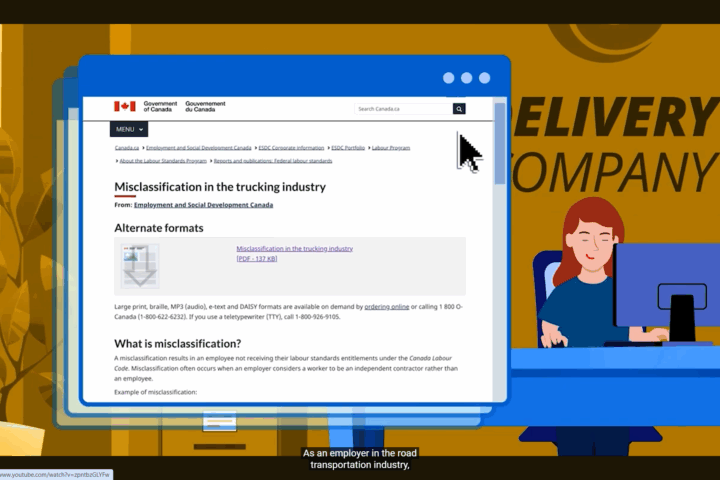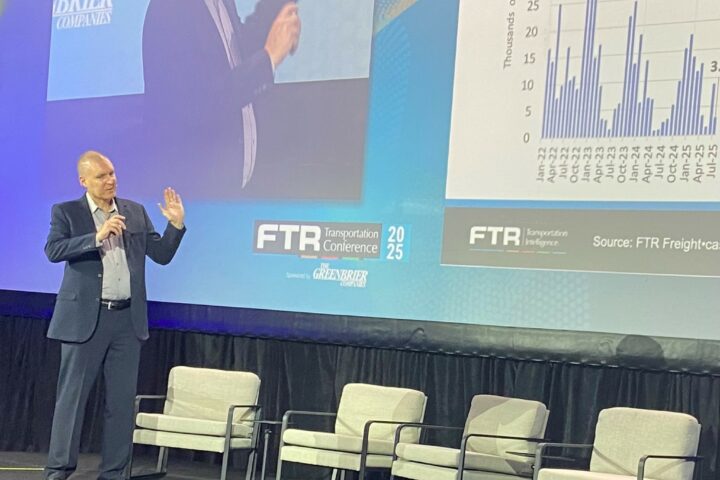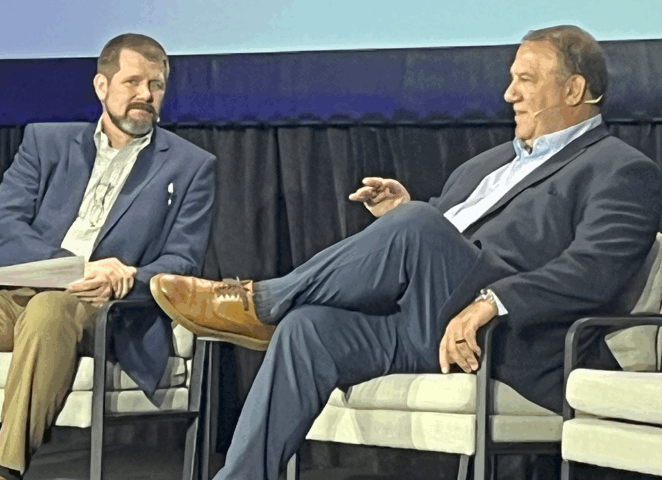The U.S. Department of Transportation (USDOT) is threatening to pull federal funding for the states of California, Washington and New Mexico if they don’t enforce English language proficiency (ELP) requirements for truck drivers.
The three states have 30 days to comply, according to a USDOT news release issued today, or the department will withhold up to 100% of federal funding under the Motor Carrier Safety Assistance Program (MCSAP).

Since late June, the Commercial Vehicle Safety Alliance (CVSA) has been under orders to put drivers who are unable to demonstrate proficiency in English out of service.
“States don’t get to pick and choose which federal safety rules to follow,” said U.S. Transportation Secretary Sean P. Duffy in the release. “As we saw with the horrific Florida crash that killed three, when states fail to enforce the law, they put the driving public in danger. Under President Trump’s leadership, we are taking aggressive action to close these safety gaps, hold states accountable, and make sure every commercial driver on the road is qualified to operate a 40-ton vehicle.”
The department says its Federal Motor Carriers Safety Administration (FMCSA) has found “significant failures” by the three states mentioned to properly place drivers out of service for English language proficiency violations.
In addition, the California Highway Patrol has publicly said it will not enforce the OOS requirements. The three states have been sent Notices of Proposed Determination of Nonconformity from the feds, opening a process that could suspend millions of dollars in federal funding through the MCSAP.
More specifically, USDOT alleges:
- California has conducted about 34,000 inspections from June 25-Aug. 21, and only one involved an ELP violation resulting in a driver being placed out of service. It is also accused of failing to enforce OOS orders issued in other states for ELP violations.
- Washington conducted more than 6,000 inspections resulting in at least one violation from June 25-Aug. 21. Two drivers were cited for ELP violations but were not placed out of service. Similar to California, the USDOT indicates Washington has not enforced OOS orders for ELP violations received in other states.
- New Mexico placed no drivers out of service for ELP violations from June 25-Aug. 21 yet allowed at least seven drivers to continue operating despite lacking English proficiency, USDOT alleges.
Industry reacts
The Owner-Operator Independent Drivers Association (OOIDA) which has been pushing for stronger enforcement of English skills supported the promised crackdown.
“OOIDA strongly supports Secretary Duffy’s action to enforce long-standing English proficiency requirements for commercial drivers,” said OOIDA president Todd Spencer.
“Basic English skills are critical for safely operating a commercial motor vehicle — reading road signs, following emergency instructions, and communicating with law enforcement are not optional. The fatal crash in Florida this month tragically illustrates what’s at stake. Road signs save lives, but only when they’re understood. Operating an 80,000-lb. vehicle without being able to read road signs isn’t just dangerous, it’s completely unacceptable. We join USDOT in calling on California, New Mexico, Washington, and all other states to enforce English Language Proficiency requirements as an out-of-service violation. This is common sense and it protects everyone on the road.”
American Trucking Associations president Chris Spear also lauded the announcement.
“Secretary Duffy’s announcement today is a necessary and welcome step toward ensuring safety and accountability on our nation’s highways. Federal English language proficiency requirements exist for a reason: every commercial driver operating in the United States must be able to read road signs, communicate with law enforcement, and understand safety instructions. When states fail to enforce these standards, they put lives at risk…We commend the Trump administration for holding states accountable, and we urge swift, consistent action to close these dangerous loopholes. Safety must never be optional.”












